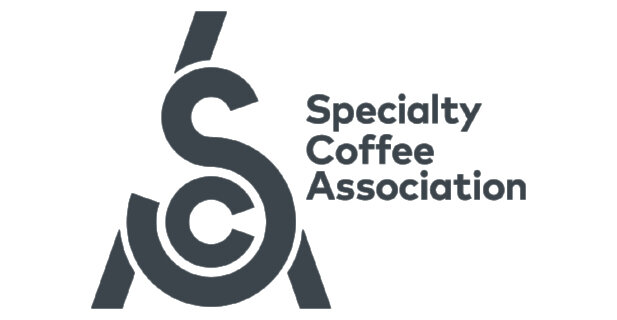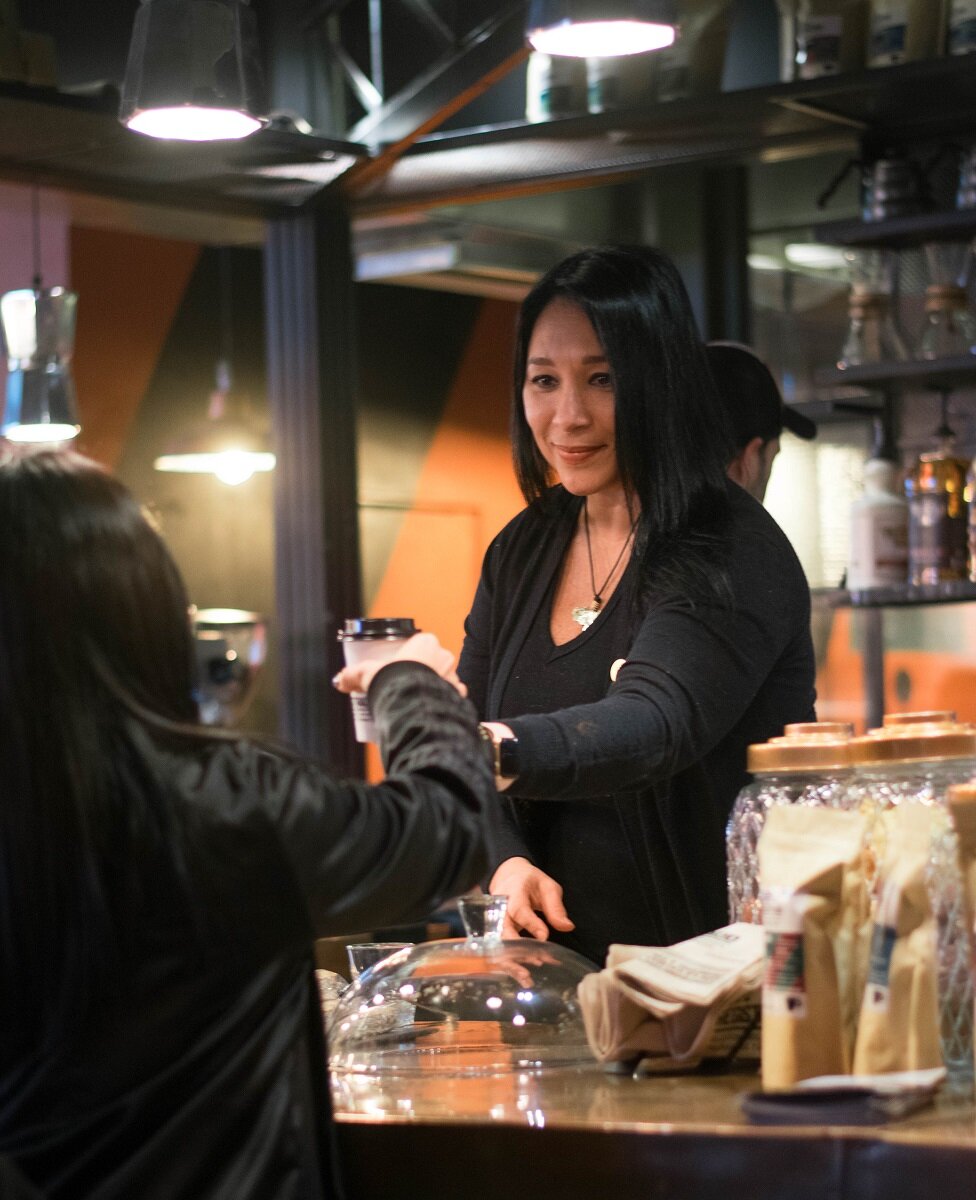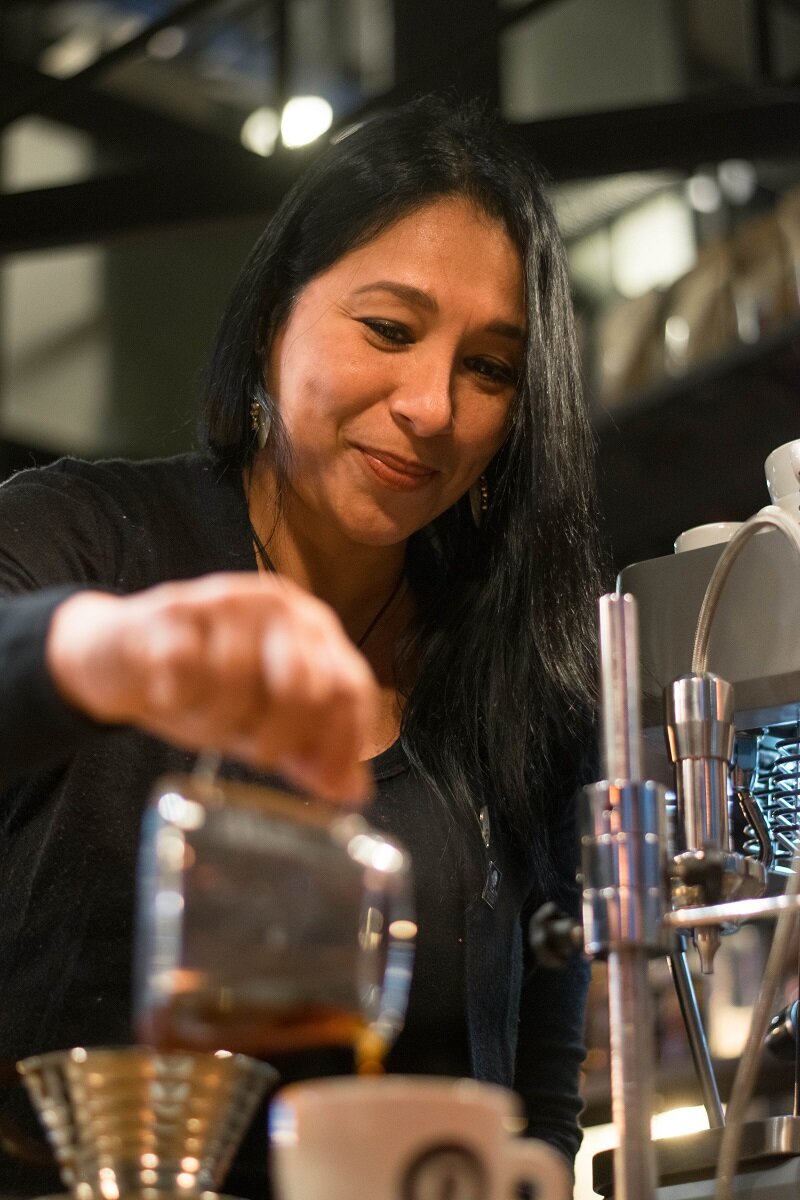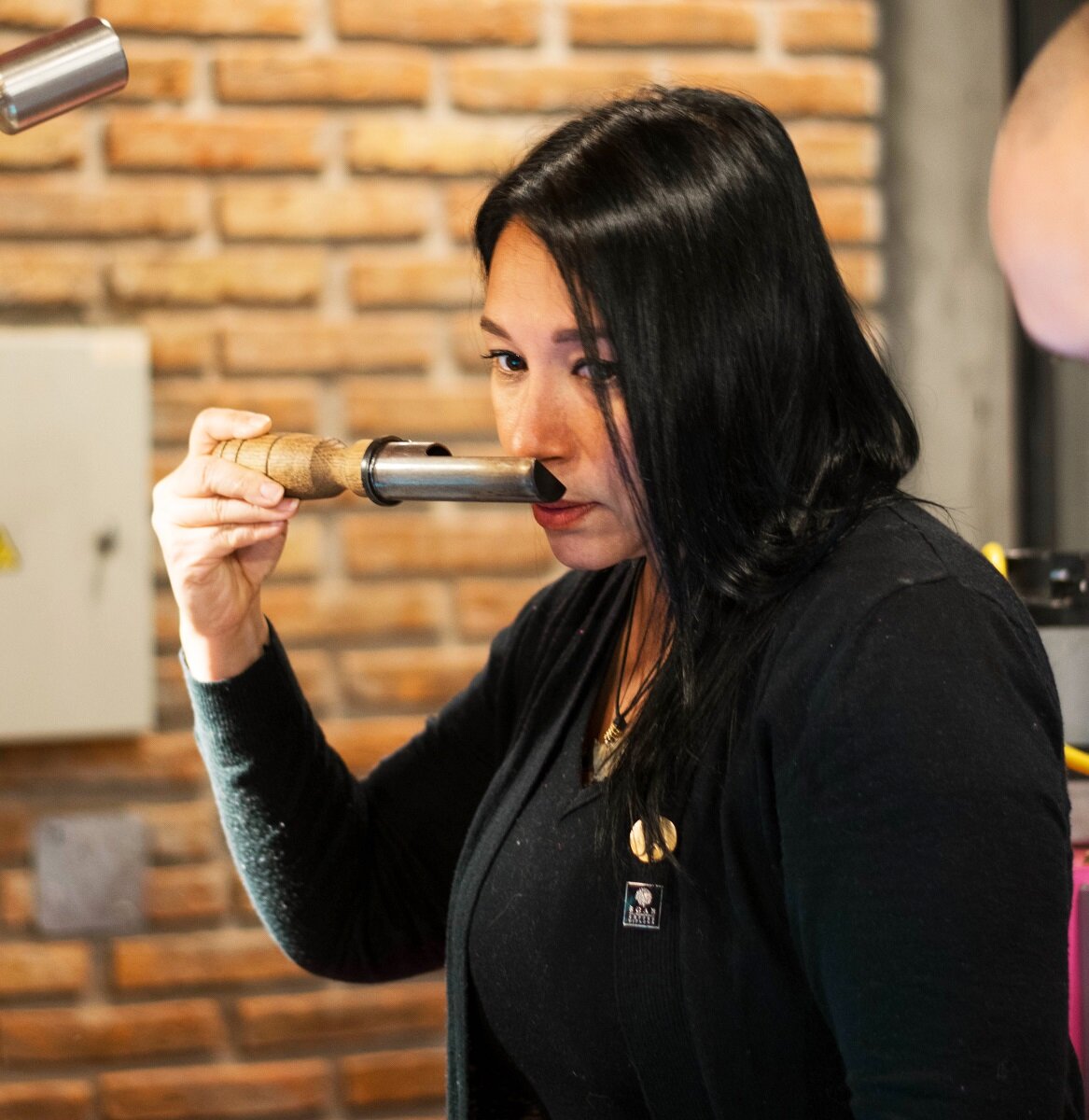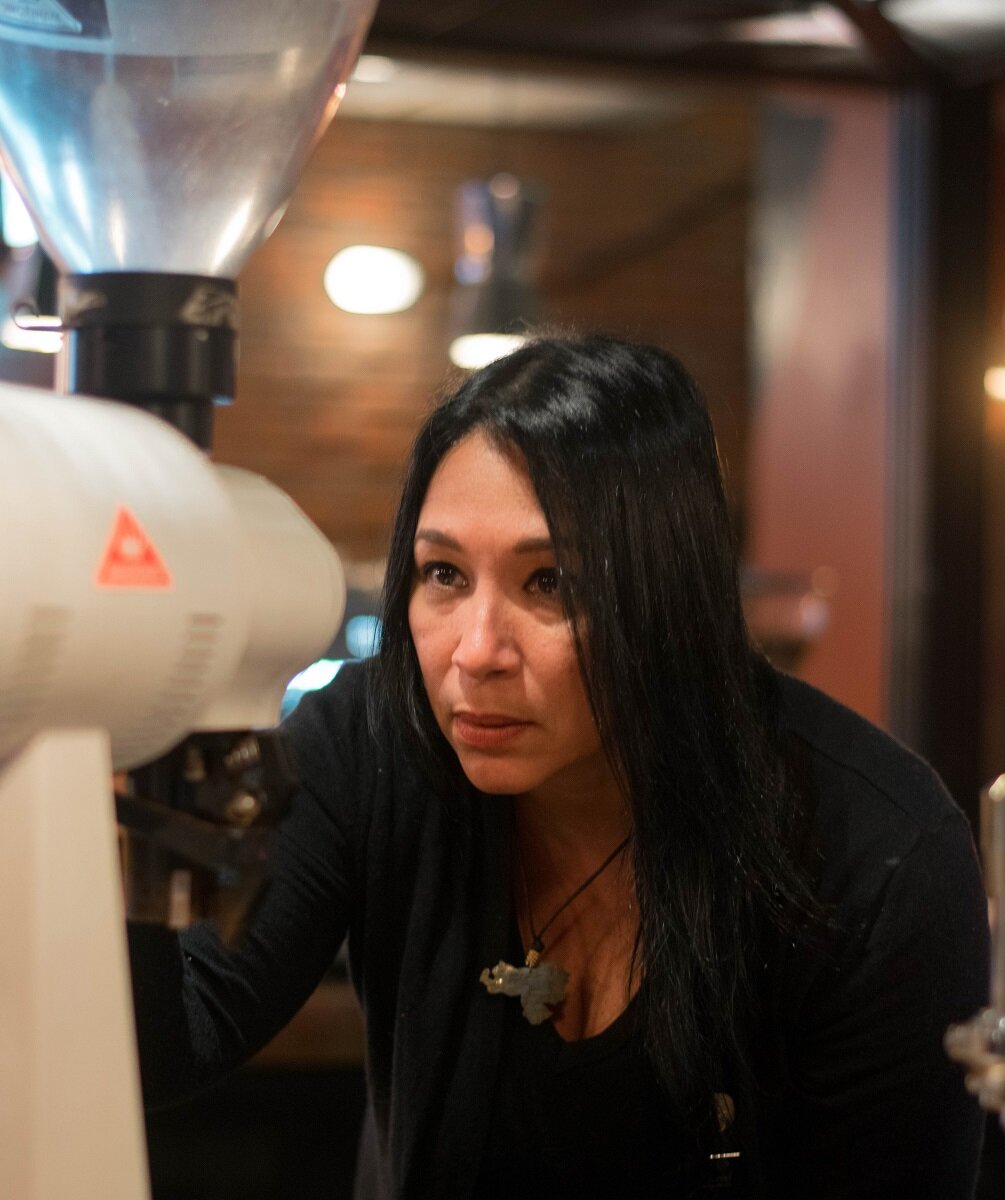Reinventing Yourself Through Coffee - 25 Magazine: Issue 6
I was born in Venezuela, a beautiful country, warm and happy, with an inexhaustible source of natural resources and paradisiacal beauties. Perhaps it is not what my country is known for nowadays, but for many years Venezuela was the favorite destination of many foreign visitors who found in its beaches, its white sands, its splendid sun, and its people a suitable place to vacation and live.
MARÍA ESTHER LÓPEZ-THOME shares her story in Issue 6 of 25 Magazine. All photos by Andres Anaya.
In Venezuela, we do not have seasons – we only have sun and rain. A perfect summer, 365 days a year. We have beaches, plains, mountains, and a very fertile soil; planting and cultivating have always been easy for us. Venezuela was, for many years, one of the most important coffee producing countries.
Venezuelans are characterized by their joy, their strength to reinvent themselves in complicated situations, their desire to overcome, and their nobility.
Venezuela was a country in which to dream. To grow and live forever. Was.
A Lawyer in a Time of Crisis
I’m a lawyer. Specifically, I’m a specialist in Administrative Law, Tax Management, and Territorial Special Regimes. For many years, I worked for the National Tax Service in Venezuela, namely in the customs area: my job was to defend the Venezuelan State in customs lawsuits. In 1994, the Venezuelan government received a loan from the Inter-American Development Bank and the International Monetary Fund to carry out tax reform and modernization of the country’s tax system. I was part of the group of people who joined this new Tax Service in the country.
I consider myself an apolitical person. For many years, to work in this organization, at least at the middle levels, it did not demand a political party affiliation.
Until President Chavez arrived. Then, everything changed.
What at first began as a chance for a new beginning, full of hope for many (not for me), quickly turned into despair, struggles, and shortcomings. For those of us who worked in Tax Administration, the new government soon began to demand our support of the regime. Partisans of the President enjoyed privileges, benefits, political positions; those who were not were dismissed as unusable or placed in positions that impaired their skills and abilities. And this was a best-case scenario.
This is when coffee came into my life.
Living Life Through Coffee: The Beginning of a Dream
I found coffee just by chance – I wasn’t looking for it, I didn’t know anything about it, and I certainly never expected to make a career out of it. My only relationship with coffee, at first, was the memory of my mother brewing her “manga” (cloth filter) each morning and sometimes giving me a very sweet café con leche and pan dulce. Later on, I’d enjoy a “tall latte” in Starbucks when I visited the US. However, one of my older sisters used to work for a large Venezuelan coffee company, Café Fama de America (before it was expropriated by the Chavez government), which had received technical agronomy support from a Swiss company for better harvest practices. This was my first introduction to the term “specialty coffee.”
I began to feel increased government pressure to provide political support within my role, so I decided to invest time in understanding what “specialty coffee” meant.
At first, I took informal classes and read a lot on the internet. In 2005, I realized how important coffee was to me and that, in order to progress, I would need a better coffee education. On one of my trips to the US, I spent time taking a Barista Professional Course at the then-new Soho Intelligentsia Lab. The class may have lasted only three hours, but it filled my head with dreams. In 2010, I made a decision to pursue coffee more seriously: I started traveling to the US more, became a SCAA member, took the SCAA Lead Instructor class, and volunteered at coffee events as frequently as possible. At SCAA Portland, I faced a difficult task: using complex equipment that I had never seen before. It was a pivotal moment for me. But I succeeded thanks to the support of many other volunteers and professionals who gave me their time and help.
After two years of studying and volunteering for SCAA, I set my sights on Europe. I applied – and was accepted – to volunteer with the (then) Speciality Coffee Association of Europe (SCAE) and started my training in Spain, Italy, and in other European countries.
Here, I found the best of two worlds: SCAA and SCAE, united in coffee. I worked hard to learn from and represent them. In 2012, I became the first SCAE teacher from Venezuela.
Being a Lawyer; Being a Coffee Teacher
There were many challenges to furthering my coffee studies. Not only was I extremely busy at my job as a lawyer, but also as a full-time single parent to my daughter. Funding my traveling and courses while being paid in Venezuelan bolívares was extremely expensive.
I took opportunities to give courses all through Latinoamérica. I traveled a lot, taught a lot. But my teaching had to revolve around my vacation time.
By this time, the political tension in Venezuela was bordering on a civil war. My daughter, then 17 years old, was close to finishing high school; it was time to consider universities. In Venezuela, the social insecurity, crime, and lack of principal services and food made me realize I needed to have a plan B, and urgently.
In 2014, I was the first SCAE Trainer to be invited to give courses in Ethiopia. While I was there, many young people were killed in Venezuela’s streets while protesting against the regime. An 18-year-old boy died: that was my breaking point. I sent my resignation letter by fax, and I decided that I would live from that day on as a coffee professional.
I never looked back. And never regretted it.
Leaving My Country with Two Bags
I have been lucky with the people I met during my journey – they are part of what made me fall in love with the coffee industry. I have not found this industry’s friendship, support, sharing, and passion in any other profession in my life. Karate is the only other aspect of my life I can compare it to: being part of something bigger than your wishes and aspirations.
As an AST (Authorized SCA Trainer), I have had the opportunity to travel around the world, teaching and meeting incredibly beautiful people who share the same passion and vision as me. And I keep learning, it never stops. I grow every time one of my students succeeds. I learn through them, and with them.
But coffee gave me one of the most important things in life: it brought hope. Smiles and dreams. And love – while volunteering at the World Barista Championship in Rimini, I met my husband, Dylan.
Today, Dylan and I share the same passion with a high emphasis on quality and direct trade sourced beans. Not because it is “trendy” and a valued marketing tool, but because as a citizen of a producer country, I know the struggles producers face each day, and what they dream and hope each time they receive a visit from a potential buyer. We respect them and believe in their efforts.
For those of you who may wonder what happened to Venezuela, it is still a rich country, but it is destroyed: there is little food and no medicine. The monthly salary, worth less than US$2, doesn’t even begin to cover the cost of the food that is available.
I left the house I worked so hard to finally own, my possessions, my life, all behind me. I took my daughter, my dog, two bags. We moved to Buenos Aires, Argentina. We started afresh.
Today, we look to the future with clear goals, ones that we share with other partners and the ones that we keep to ourselves. And the view is incredibly exciting.
MARÍA ESTHER LÓPEZ-THOME is the Head Coach, Purchase Manager, and Green Coffee Buyer at Café Registrado® Buenos Aires. She is also an Authorized SCA Trainer and a fellow of the SCA Technical Standards Committee.
A note from María Esther:
While I look to the future, I do not dismiss my country or forget my roots – my heart hurts every time I see what is happening at home. The Venezuelan people are still in a very critical situation, but there are many people still in Venezuela investing their time and energy in making it a better place to live. It is extremely difficult, but not impossible: they believe in and dream of a better country.
We, as Venezuelans, have always loved to study and learn new things and this love has not changed despite the circumstances Venezuelans now face. Young people are taking courses and gaining skills in coffee. Producers, who struggle with the total governmental control of the entire coffee value chain, are still working to innovate and improve their agricultural practices with the tools they can find and access. They are – in some cases quite literally – working themselves to death, but they still believe in the care and attention to detail prized in specialty coffee. Their passion is not diminished by the political and economic situation. It has increased, enormously.
I love my country. I miss it deeply. I hope to return one day, to the beaches and the mountains of my home, to teach and share my love of coffee, to help others reinvent themselves and build new opportunities.
